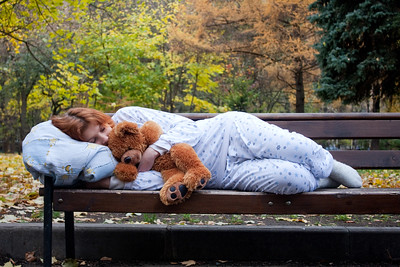Sleeping pills and your health. Let’s dive in to explore.
I am excited to share some facinating and helpful information on sleep from the book Why We Sleep: Unlocking the Power of Sleep and Dreams by Matthew Walker, Ph.D.* Stay tuned for more health topics related to getting your zzz’s. Today I am sharing information on Sleep Aids affecting your health.
The detrimental effects of sleep deprivation are well-known to me and likely many of you. I often wonder if the health effects of sleep deprivation outweigh or underweigh the health effects of taking sleeping medications. The sleep-aid industry in the U.S. is a $30 billion industry. Becoming reliant on aids, have we inadvertently impacted our overall health in America? Let’s take a look at some facts.
Statistics/Studies
According to Dr. Walker, it is thought that sleep induced with medication does not provide the same restorative immune system benefits as natural sleep. This is alarming because our health and preventing disease is dependent upon a well functioning immune system. The following are some statistics based on a study mentioned in Why We Sleep: Unlocking the Power of Sleep and Dreams:
- The use of Ambien prior sleep caused a 50% weakening, or unwiring, of brain-cell connections (essentially erasing memories).
- Those using prescription sleep medications are significantly more likely to die and develop cancer. Even using just 18 pills per year raised the likelihood of death by 3.6 times. 132 pills per year raised it 5.3 times!
- Those in the study using sleep medications had a 30-40% greater chance of developing cancer within 2 1/2 years following the study.
If sedating ourselves with sleep medications is erasing most of the health benefits of sleep, then I beg to question the validity of these medications at all. It certainly makes sense to consider more gentle sleep aids and/or other lifestyle changes to optimize our sleep.
Other Sleep Aids for Consideration
There may be various reasons why people aren’t sleeping well. I strongly urge you to talk to your health practitioner to potentially uncover health issues or medications that may be impacting your sleep. Whether you are dealing with anxiety, your hormones are imbalanced, hot flashes are waking you up, stress has you wired, or your circadian rhythm is out of wack, your answers may be different than anothers. Getting to the root cause is always preferred. Here are more natural sleep aids to explore unti then (these options were not covered in Dr. Walker’s book):
- Popular herbal remedies for sleep include: valerian root (relaxes the body), ashwahganda (anxiety), passion flower, hops, kava kava, or the most gentle chamomile.
- Amino acids have shown positive results for some: gaba with L-theanine (stress/anxiety), or L-tryptophan (for mind chatter)
- Melatonin may help to reset your sleep if you have jet lag or your bedtime has gotten off track.
- CBD and/or THC (where legal) can help calm you for a restful sleep (although for some, these options may hinder rest).
- Other Considerations: Magnesium glycinate can help relax the body and mind, Jujube Seed also promotes rest.
Sleep Optimization Solutions
Natural sleep aids may help calm tension for a restful nights sleep, but I suggest reviewing your lifestyle first to get to the culprit of your sleeping woes. As shown in our last post on sleep, here are some tips on improving your zzz’s:
- Consider more protein and fat (less refined sugars and carbs) at your last meal to ensure blood sugar issues aren’t waking you in early morning hours.
- Avoid caffeine, alcohol and nicotine esp. late afternoon and evening hours
- Consider dim lighting during evening hours
- Avoid blue light from electronic devices. Utilize blue light blocking glasses and twilight settings
- Keep your bedroom cool during sleep (65 degrees F optimal)
- Aim for complete darkness when sleeping (blackout curtains work well)
- Establish a regular bedtime and waketime for regulating your circadian rhythm and get exposure to sunlight first thing in morning
- Avoid napping after 3pm
- Exercise daily preferably at a set time (morning light outdoors is ideal)
- Consider a wind-down routine before bedtime to train your brain that sleep is coming
- A hot bath can help with drowsiness before bed
- Avoid being too hungry or too full at bedtime and minimize sugar (stop eating 3 hours prior sleep)
- Don’t lie in bed awake more than 20 minutes
- Consider medications that may be affecting your sleep and talk to your doctor
- If you feel you suffer from insomnia or another sleep disorder, consider visiting the National Sleep Foundation website for sleep centers. You can also find a sleep medicine doctor in your area (little sleep training is given to general medicine doctors).
- Cognitive Behavioral Therapy (CBT) has shown great results for optimizing sleep rhythms (work with a practitioner)
Resources
Why We Sleep: Unlocking the Power of Sleep and Dreams by Matthew Walker, Ph.D.*
*Matthew Walker is a professor of Neuroscience and Psychology at UC Berkeley, the Director of its Sleep and Neuroimaging Lab, and a former Professor of Psychiatry at Harvard University. He has published over 100 scientific studies and has appeared on 60 Minutes, Nova, BBC News, and NPR’s Science Friday.
Also noted in the book above, here is a source by By Daniel F. Kripke, M.D., if you care to learn more about the research and clinical studies done.
About Linda

Health educator, author, and speaker, Linda Curry, facilitates, “Attaining health one bite at a time,” through simplifying health and growth strategies with wisdom, compassion, acceptance and practicality. Linda offers customized health consultations, cooking instruction and coaching as one-size does not fit all. Check out her Youtube Channel for recipes or her 13-week Get-Healthy Makeover Series.

